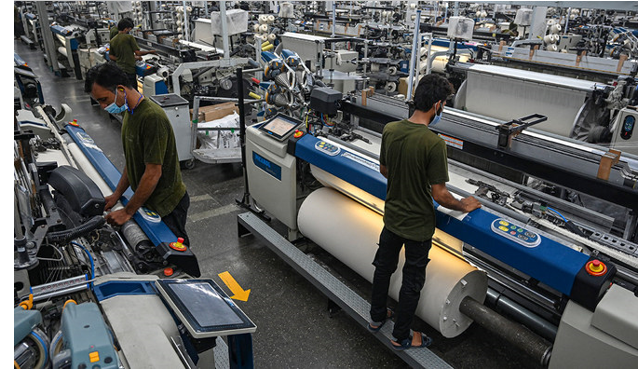INP-WealthPk
Arooj Zulfiqar
As Pakistan’s manufacturing sector grapples with mounting challenges from surging input costs to energy shortages, innovative strategies and investments are a must to transform these obstacles into drivers of economic growth and resilience.

The industrial sector grew by 1.21% in FY24 compared to a contraction of 3.74% in FY23. The sub-sector, large-scale manufacturing (LSM), experienced a slight decline of 0.1% during the July-March period of FY24 compared to a significant contraction of 7.0% during the same period of FY23. After consecutive negative growth in Q1 and Q2 of FY24, the LSM sector showed a V-shaped recovery in Q3 of FY24, with a growth of 1.47%. Almost 50% of sub-sectors have recovered and posted positive growth. Factors such as high inflation, prolonged tight monetary policy, and the low recovery process in major trading partners contributed to the contraction of the LSM sector. “Pakistan’s manufacturing sector has been grappling with multiple issues. The energy crisis, marked by inconsistent electricity supply and rising fuel prices, has raised production costs and reduced operational efficiency,” points out Majid Shabbir, Policy Adviser at the Islamabad Chamber of Commerce and Industry (ICCI).
Talking to WealthPK, he said that one of the biggest constraints in Pakistan’s manufacturing sector was its dependency on imported raw materials. “By fostering local industries that can supply these inputs, manufacturers can reduce vulnerability to international market fluctuations.” He said the lack of investment in technological advancements also hindered the sector’s ability to innovate and stay competitive. “Pakistan’s manufacturing sector has untapped potential despite these challenges. With the right policy measures and investments, the sector can transform, unlocking new growth avenues and boosting the economy.” Shabbir said: “To remain competitive, Pakistani manufacturers need to embrace technological advancements. Investing in automation and artificial intelligence can help streamline production processes and reduce dependency on labour-intensive practices. This transition will increase productivity and reduce costs in the long term.”
The ICCI policy adviser maintained: “A focus on building a self-reliant supply chain will also support smaller industries, contributing to job creation and reducing the trade deficit.” He said small and medium-sized enterprises (SMEs) were the backbone of Pakistan’s manufacturing sector, yet they often struggled to access affordable financing. “Strengthening financial inclusion through targeted lending programmes for SMEs can provide them with the capital needed to scale operations and invest in modernisation.” Shabbir said that to achieve these goals, the government must collaborate closely with industry stakeholders, including private sector leaders, trade associations, and foreign investors. “A comprehensive policy framework that focuses on ease of doing business, enhanced infrastructure, and skilled labour development will be critical to success. In addition, regulatory reforms are needed to reduce bureaucratic hurdles and create an investor-friendly environment.”
Credit: INP-WealthPk













